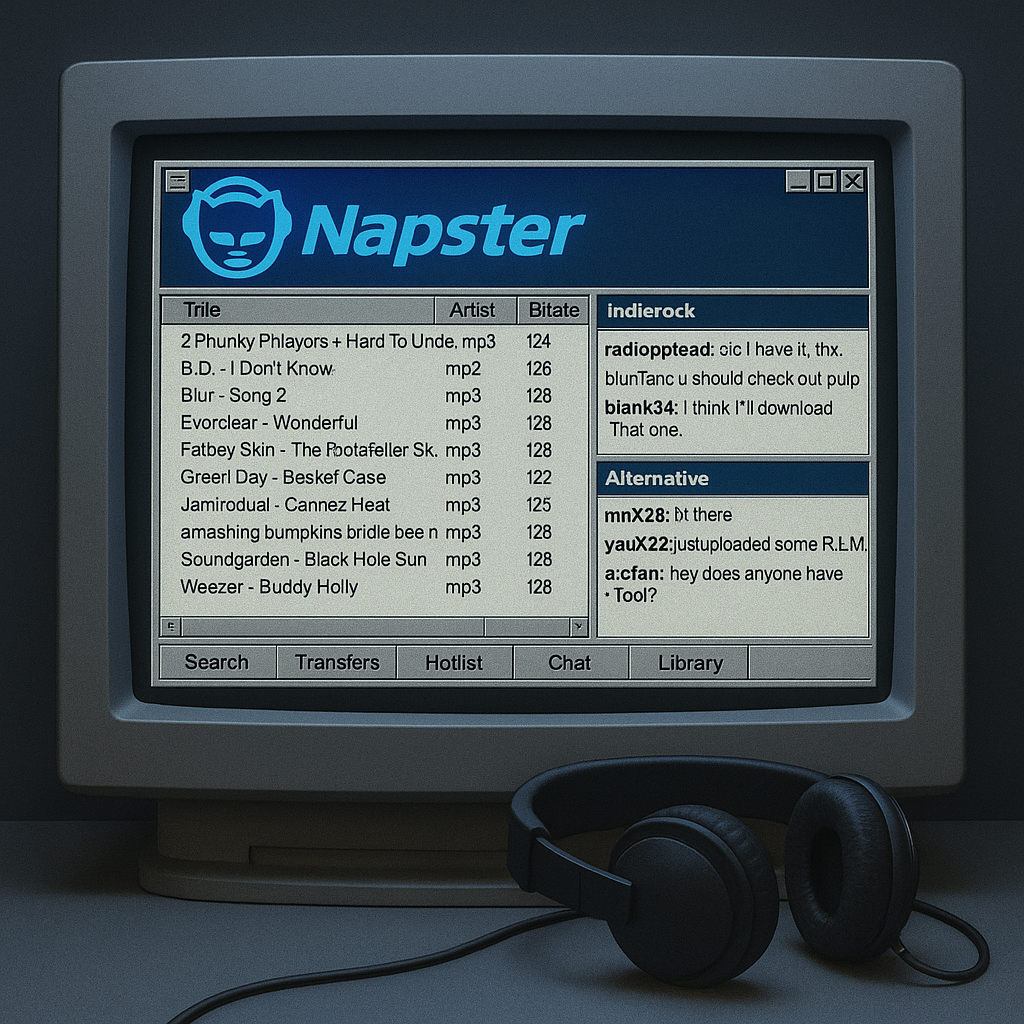At the turn of the millennium, a single piece of software reshaped the way we thought about music, the internet, and online communities. That software was Napster. Launched in June 1999 by Shawn Fanning and Sean Parker, Napster became one of the first widely used peer-to-peer (P2P) file-sharing services. Its rise was meteoric, its fall was dramatic, and its legacy continues to echo in today’s streaming world.
The Birth of a Digital Underground

Before Napster, music fans bought CDs, taped songs off the radio, or downloaded low-quality rips from obscure websites. Napster changed all of that by creating a simple platform where anyone could share and download MP3 files directly from other users’ computers. Suddenly, the world’s music library felt just a click away—and it was free.
Napster wasn’t just about music. It was about connection. The program came with built-in chat rooms where fans discussed bands, traded playlists, and discovered underground artists. In many ways, Napster blended media with community in a way that feels surprisingly similar to modern platforms like Discord, Twitch, or even Morphie’s own chat culture.
The Clash with the Industry
The music industry didn’t see Napster as a cultural revolution—it saw a threat. Record labels, artists, and especially Metallica (who famously sued Napster in 2000) argued that file sharing amounted to theft. In 2001, after a wave of lawsuits, Napster was forced to shut down.
But the genie was already out of the bottle. Millions of users had experienced the thrill of instant access to music, and they weren’t going back. Napster’s shutdown only paved the way for successors like LimeWire, Kazaa, and eventually legitimate streaming services like Spotify and Apple Music.
A Lasting Legacy
While Napster itself didn’t survive in its original form, its impact is impossible to overstate:
- Cultural Shift: It normalized digital music consumption, laying the foundation for the streaming era.
- Community & Discovery: Napster’s chat features created global hubs where fans connected over shared interests, much like online communities today.
- Tech Inspiration: Napster inspired new peer-to-peer technologies, influencing how digital distribution evolved.
Napster’s story is one of rebellion, innovation, and inevitability. It showed us what was possible when people shared not just files, but passion.
From Napster to Morphie
At Morphie, we see echoes of Napster’s spirit in our own community. Just as Napster connected fans around the world through music, Morphie connects users through chat, games, and shared culture. The tools are different, but the heart is the same: connection, discovery, and fun.
Napster may be gone, but its DNA lives on in every stream, playlist, and online community. It wasn’t just a service—it was a movement.
